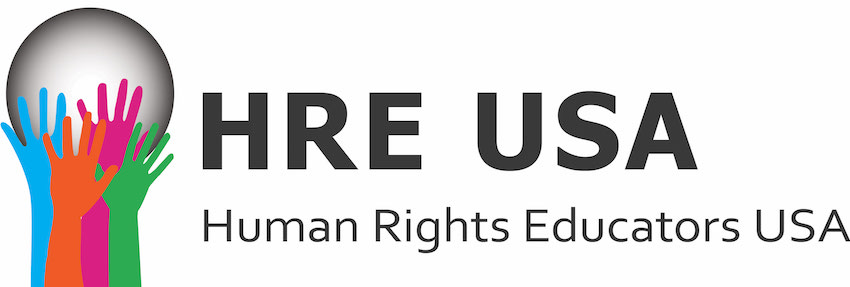We are pleased to announce the availability of our latest installment of podcast episodes in Human Rights Education NOW! Episodes 25 & 26 feature conversations with Audrey Osler. Audrey Osler is Professor Emerita of Citizenship and Human Rights Education at University of Leeds, and Editor-in-Chief of Human Rights Education Review. She is the Co-Chair of International Association for Human Rights Education (IAHRE). Audrey is known internationally for HRE research addressing policy, curriculum, racial justice, and child rights in established democracies and post-conflict settings. In addition to a long UK-based career, Audrey has worked for 13 years as professor in Norway, and extended periods in the US (University of Washington, Seattle and Utah State); China (Beijing Normal and Hong Kong University of Education); and Japan, where she held Japan Society for the Promotion of Science (JSPS) fellowships. Her books include Human Rights and Schooling: An ethical framework for teaching for social justice (2016); Where are you from? No, where are you really from? (2023) exploring empire, migration, and her family history in India and South-East Asia; and Nordic Perspectives on Human Rights Education (2024 with Beate Goldschmidt-Gjerløw). Audrey can be heard discussing her views on authors that have influenced her here.
Episode 25: Audrey Osler, Part One
In Episode 25, Audrey Osler shares her origins of interest in human rights and human rights education and the importance of human rights education (HRE) language in working with anti-racist education in the UK. She then explains the impact of transnational activities on her approach to HRE, including her work in Louisiana, Beijing, and Japan, and how listening to peoples’ stories and understanding their meanings have enriched her life. Audrey goes on to discuss the relationship between universal human rights standards and local experience as critical to advancing HRE and sustaining concepts of humanity in conflict-ridden situations, as well as her efforts in developing education for cosmopolitan citizenship alongside Professor Hugh Starkey. Audrey emphasizes the centrality of migration in history and contemporary society, and the significance of collecting and gathering stories from marginalized groups as critical to reducing the “othering” of said groups. Next, Audrey describes the legacy of colonialism and the broader impact on the UK population as well as the oversimplification of history currently taught to students. She underlines the pervasive influence of colonialism as interpreted differently by various social groups and the need for serious reconsideration of history curriculum as one that embraces a critical approach.
Topics discussed:
- Origins of interest in human rights and human rights education
- Importance of human rights language in anti-racist education
- Impact of transnational activities on approaches to HRE
- Listening to others’ stories as enriching to one’s life
- Universal human rights standards and local experience in conflict resolution
- Educating for cosmopolitan citizenship
- Migration in history and contemporary society
- Reduction of “othering” with regards to marginalized groups
- Legacy of colonialism on history curriculum, need for revision
Full topic listing available for PDF download HERE.
Listen on our Buzzsprout podcast website HERE.
Episode 26: Audrey Osler, Part Two
In Episode 26, Audrey Osler shares her thoughts on the impediments to implementing HRE in the USA. She then explains the importance of recognizing children as citizens and the Convention of the Rights of the Child. Audrey then examines the lack of public dialogue in the US around human rights. Next, she discusses how educating journalists about human rights is critical, and how there is a lack of focus on human rights in dealing with domestic policy issues in the USA. Audrey offers a comparison to Norway and its human rights image, including an analysis of Norwegian exceptionalism with regards to human rights, as compared to the UK. Audrey then describes how education can act as a counter-socializing force and challenge notions of exceptionalism, and the need for international perspective and curriculum to challenge nationalistic education through advancing human rights education (HRE), while sustaining a love for one’s nation and still recognizing one’s common humanity. Next, she shares her sentiments and concerns regarding the rise of authoritarianism, and the importance of examining underlying causes and revisiting definitions of power and democracy. She elaborates on confronting the rise of dictatorial tendencies in political parties, and identifies our fascination with personality and spectacle as problematic. Audrey then discusses how her mother was her most Influential role model in challenging injustice, and how an important recommendation to advancing HRE would be for all governments to abide by their international commitments to human rights norms and treaties.
Topics discussed:
- Impediments to implementing HRE in USA
- Importance of recognizing children as citizens
- Convention of the Rights of the Child
- Deficient public dialogue around human rights in USA
- Education of journalists about human rights
- Human rights and domestic policy
- Exceptionalism in Norway, UK, and USA
- Rise of authoritarianism, need to reexamine democracy and power
- Fascination with personality and spectacle as problematic
Full topic listing available for PDF download HERE.
Listen on our Buzzsprout podcast website HERE.

